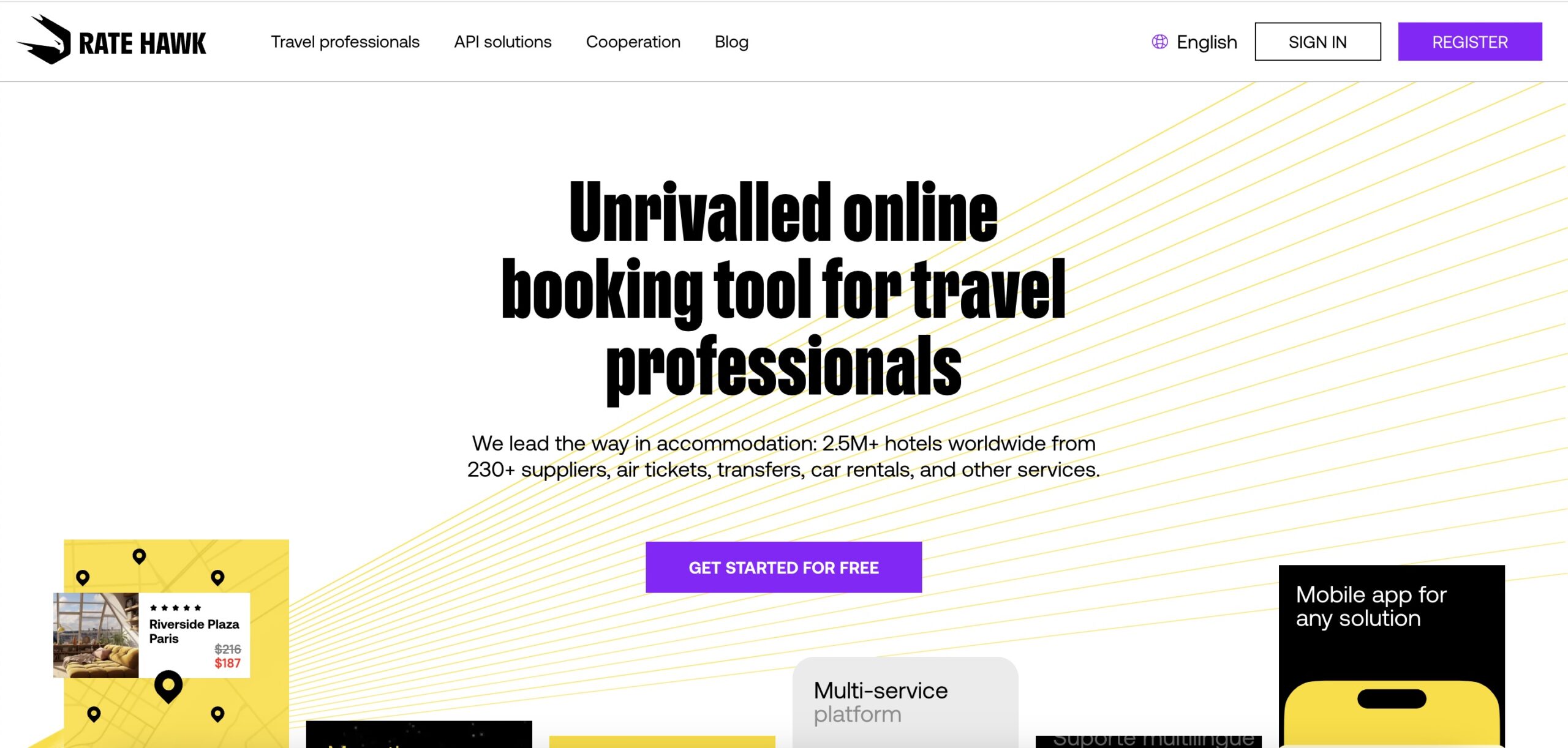
Humans love visiting new places and that’s the lifeblood of the travel industry. The travel business is never dead and despite the pandemic a few years ago, it will always exist in line with technology. For example, more and more travel businesses are integrating with online applications, and with the trend of more and more investments in many online travel business platforms, API integration might just determine where the industry goes. Developing, say, an online booking product is not as simple as it seems, and working with a truly expert third party often guarantees significant cost savings.
Travel API integration brings automation and ultimately time savings. All of which can be achieved with the right investment, not too much. Thus business efficiency can be achieved and certainly, the direction of business travel is positive. Perhaps one good example is the ease with which budding travel businesses can list their products or services on online booking platforms like RateHawk API. Collaboration with such platforms makes it easier for budding travel business owners to increase their turnover and of course their popularity as business people.
Travel APIs should be easy to use
Ease of use is one of the reasons why many travel service providers rely on APIs. “Traditionally formatted” bookings are rife with errors and unfortunately, even one mistake can be detrimental to a company’s reputation in the long run. Minimizing the risk of errors is the constant task of every travel business and they can do that much better if they rely on APIs and their integration with other aspects of their business.
But what exactly is an API?
We’ve mentioned APIs a lot in the past but what is an API? An API is an Application Programming Interface and in relation to the travel business, the API in question is of course related to functions such as hotel searches, hotel bookings, tour show payments, and much more. APIs are never separated from “integration” and in the context of travel apps, they definitely act as a “digital pipe of sorts” to connect two or more travel services. For example, an API can integrate multiple websites and applications at once. In the context of the travel industry, the existence of an API can prevent double booking of a single hotel room (on the same day).
With APIs, all searches for travel business products and services can be faster and more efficient. Not only that, potential travelers can also get a wider range of options related to a single search keyword. Finding travel products and services has never been easier! APIs are the intersection of technology and business and since both aspects are closely related to each other, an approach that involves both, as APIs have shown, will have more opportunities.
API Network
An API network is the “glue” of many different APIs within a particular business industry. In its function to develop the travel industry, the API network will encourage the so-called customization of travel services based on cooperation with other providers of travel products and services. In practical terms, this means digital technology-based partnerships packaged in applications that are integrated with each other. Customers, in return, will have a wider range of options without having to go through complicated procedures when they search for or book a hotel room for example.
APIs are undoubtedly one of the driving factors of the travel business that simply cannot be ignored. Online bookings tend to be preferred and integration between booking data from various booking apps is a must to prevent “errors.” In turn, booking efficiency will boost overall business turnover.

